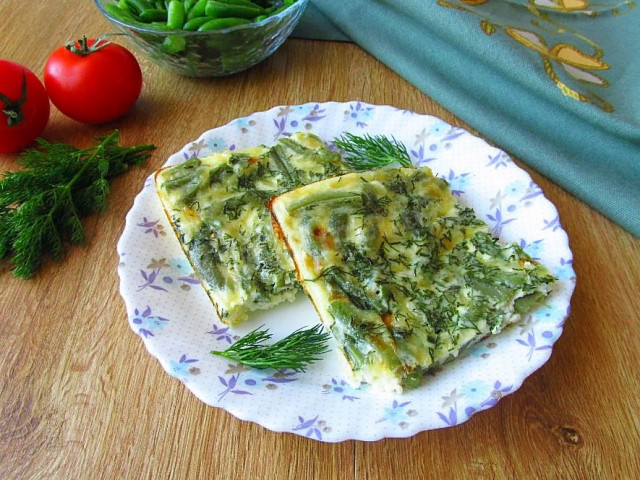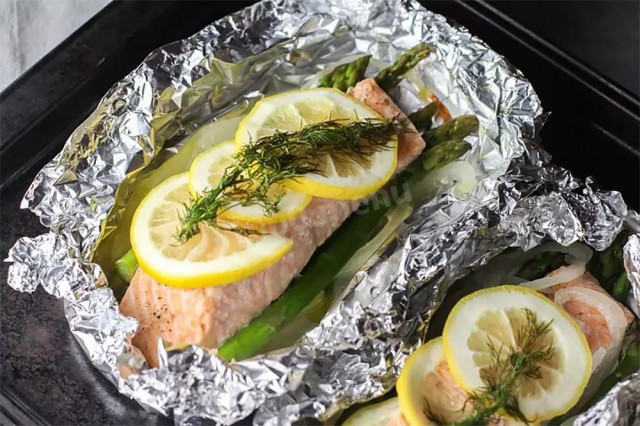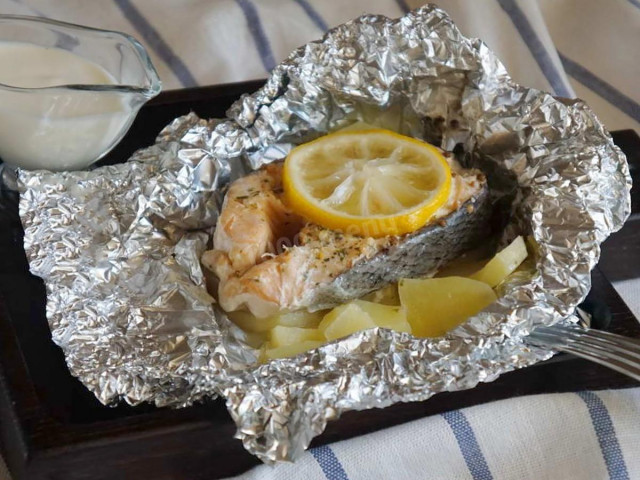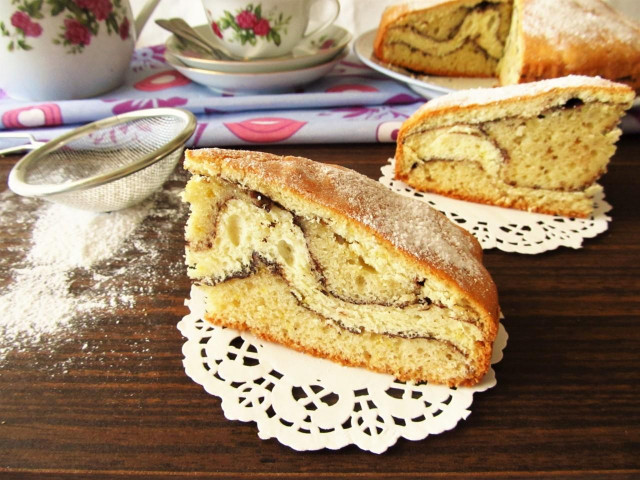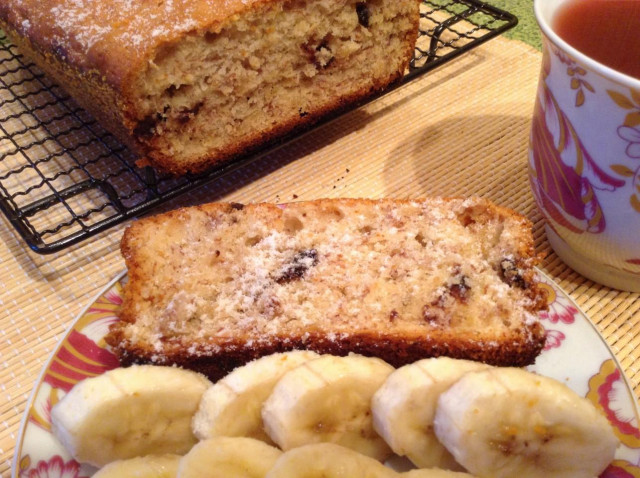Composition / ingredients
Step-by-step cooking
Step 1:
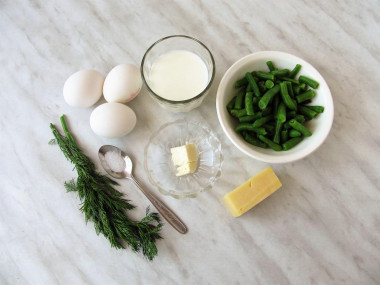
Ingredients.
Step 2:
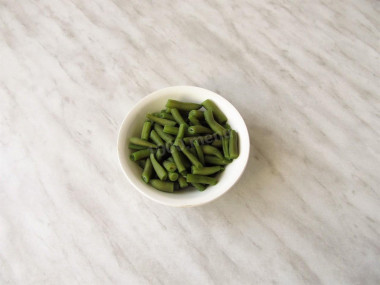
In this case, frozen beans are taken. If fresh young bean pods are used in the summer season, they must be washed and the tips removed from both sides of each pod. Boil the beans in salted water until soft, drain the water. Frozen vegetables can be boiled without defrosting. If the pods are fresh, then, after boiling, we cool them down a little and cut them into pieces 4-5 cm long.
Step 3:
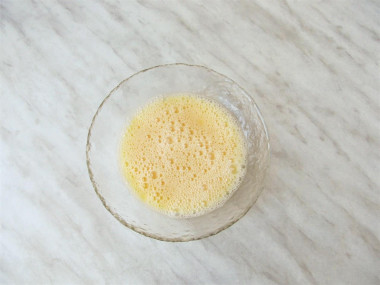
Eggs are carefully washed, broken into a convenient container. Beat until smooth. You can use a regular fork or whisk.
Step 4:
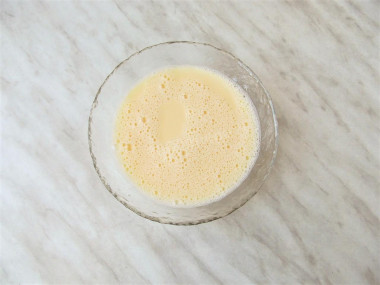
Add milk, salt to taste and whisk again. When adding salt, you need to take into account the salinity of the cheese so that the omelet does not turn out to be too salty. If desired, you can add spices to the omelet mixture, for example, ground black pepper.
Step 5:
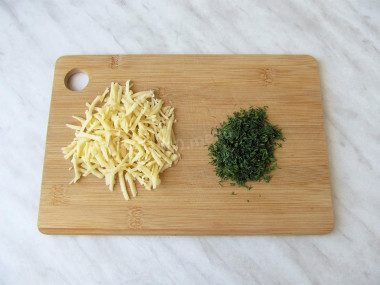
Cheese is crushed on a coarse grater. Dill is washed, dried, finely chopped.
Step 6:
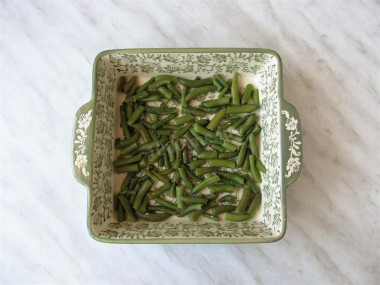
Grease the mold with oil, spread the string beans evenly on the bottom of the mold.
Step 7:
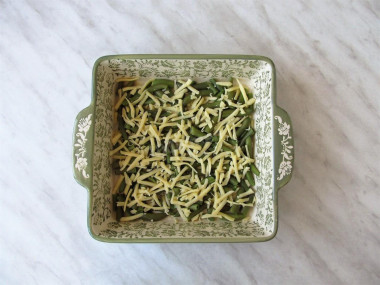
Sprinkle the beans with cheese on top.
Step 8:
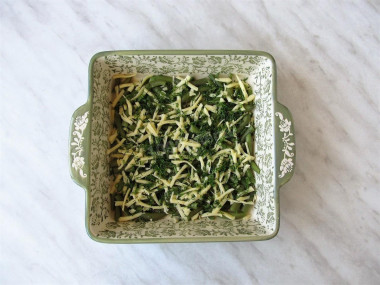
Then chopped herbs.
Step 9:
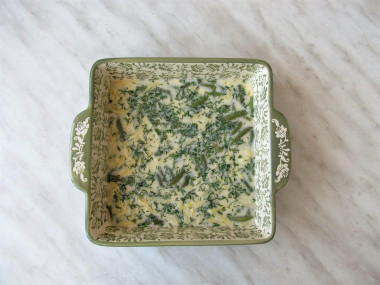
Fill everything with egg-milk mixture.
Step 10:
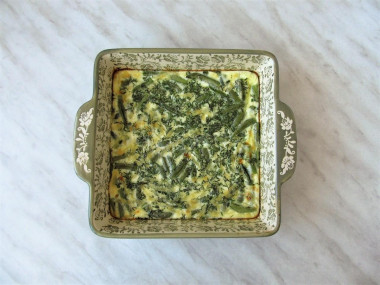
Bake the omelet in a preheated 180 degree oven until browned.
Step 11:
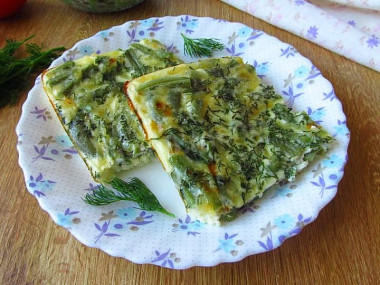
Take out the finished omelet, pour melted butter over it. Cut into portions and serve. Bon appetit!
Greens can be used any to taste. Parsley, green onions, celery leaves will do.
Using this recipe, you can make an omelet with cauliflower, broccoli or eggplant. In this case, the cabbage should also be boiled, and the eggplants lightly fried in vegetable oil on both sides.
Omelet can be cooked in a frying pan, in the oven or steamed. Cooking in a frying pan is the fastest option, steaming is more dietary. In this recipe, an omelet with beans is baked in the oven, but it can be prepared in any of the ways. In each case, it will be delicious and healthy.
Caloric content of the products possible in the composition of the dish
- Whole cow's milk - 68 kcal/100g
- Milk 3.5% fat content - 64 kcal/100g
- Milk 3.2% fat content - 60 kcal/100g
- Milk 1.5% fat content - 47 kcal/100g
- Concentrated milk 7.5% fat content - 140 kcal/100g
- Milk 2.5% fat content - 54 kcal/100g
- Chicken egg - 157 kcal/100g
- Egg white - 45 kcal/100g
- Egg powder - 542 kcal/100g
- Egg yolk - 352 kcal/100g
- Ostrich egg - 118 kcal/100g
- Dutch cheese - 352 kcal/100g
- Swiss cheese - 335 kcal/100g
- Russian cheese - 366 kcal/100g
- Kostroma cheese - 345 kcal/100g
- Yaroslavsky cheese - 361 kcal/100g
- Altai cheese 50% fat content - 356 kcal/100g
- Soviet cheese - 400 kcal/100g
- Cheese "steppe" - 362 kcal/100g
- Uglich cheese - 347 kcal/100g
- Poshekhonsky cheese - 350 kcal/100g
- Lambert cheese - 377 kcal/100g
- Appnzeller cheese with 50% fat content - 400 kcal/100g
- Chester cheese with 50% fat content - 363 kcal/100g
- Edamer cheese with 40% fat content - 340 kcal/100g
- Cheese with mushrooms of 50% fat content - 395 kcal/100g
- Emmental cheese with 45% fat content - 420 kcal/100g
- Gouda cheese with 45% fat content - 356 kcal/100g
- Aiadeus cheese - 364 kcal/100g
- Dom blanc cheese (semi-hard) - 360 kcal/100g
- Lo spalmino cheese - 61 kcal/100g
- Cheese "etorki" (sheep, hard) - 401 kcal/100g
- White cheese - 100 kcal/100g
- Fat yellow cheese - 260 kcal/100g
- Altai cheese - 355 kcal/100g
- Kaunas cheese - 355 kcal/100g
- Latvian cheese - 316 kcal/100g
- Limburger cheese - 327 kcal/100g
- Lithuanian cheese - 250 kcal/100g
- Lake cheese - 350 kcal/100g
- Gruyere cheese - 396 kcal/100g
- Dill greens - 38 kcal/100g
- Butter 82% - 734 kcal/100g
- Amateur unsalted butter - 709 kcal/100g
- Unsalted peasant butter - 661 kcal/100g
- Peasant salted butter - 652 kcal/100g
- Melted butter - 869 kcal/100g
- Salt - 0 kcal/100g
- String beans - 24 kcal/100g

